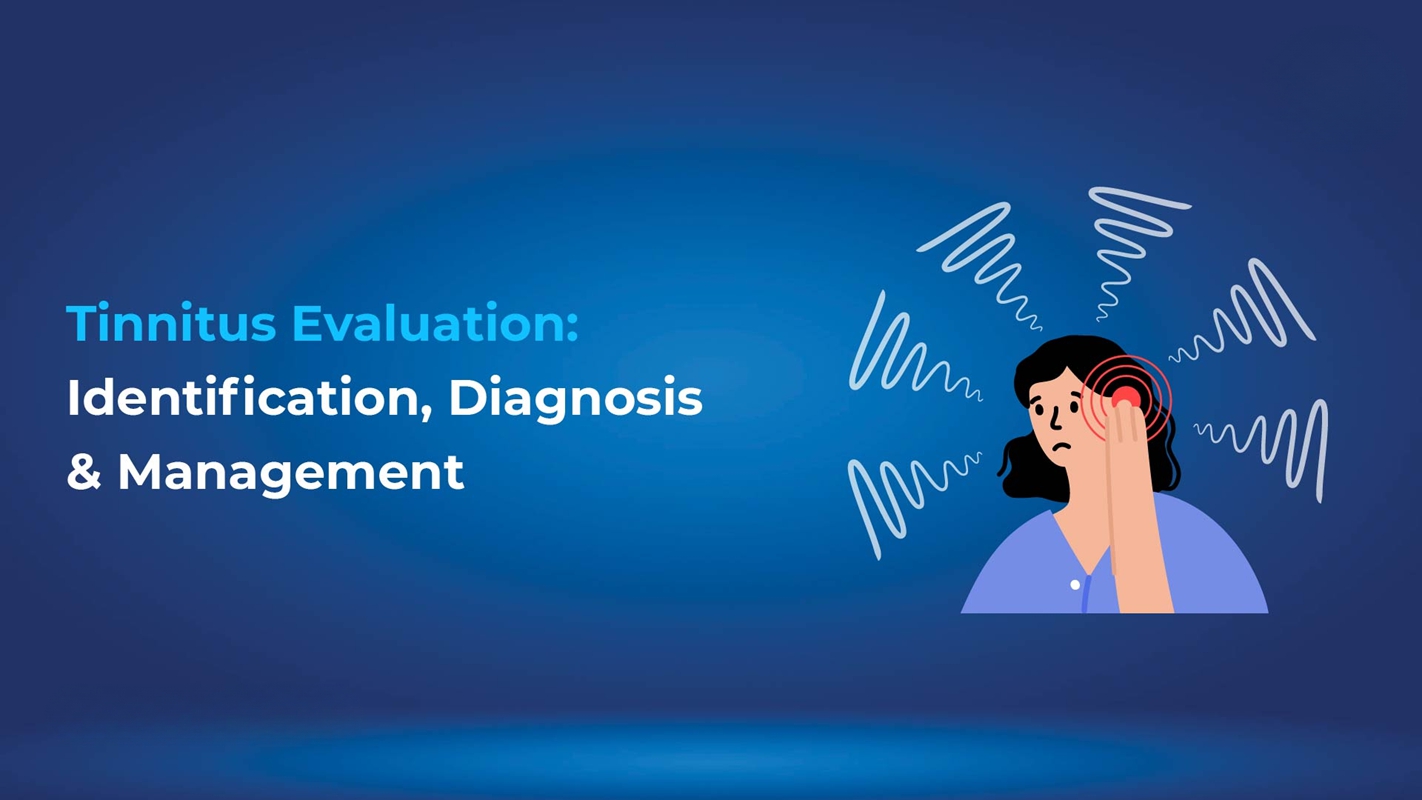
What Is Tinnitus, and When Should You Seek an Evaluation?
Tinnitus is the perception of sound in the ears or head without any external source. It's often described as ringing, buzzing, hissing, or clicking. It can occur in one or both ears and may be constant or intermittent.
Common Causes and Triggers of Tinnitus:
Exposure to loud noise (concerts, machinery, headphones)
Age-related hearing loss
Ear infections or wax buildup
Head or neck injuries
Ototoxic medications (like aspirin, antibiotics, or diuretics)
Underlying health conditions (like high blood pressure or Meniere’s disease)
Types of Tinnitus
Subjective Tinnitus
Most common form
Heard only by the affected person
Linked to hearing loss or auditory nerve damage
Objective Tinnitus
Rare
Can be heard by a doctor using a stethoscope
Caused by vascular or muscular issues
Pulsatile Tinnitus
Rhythmic and matches heartbeat
Often related to blood flow issues
Symptoms of Tinnitus
Ringing, buzzing, or clicking sounds
Sounds may vary in pitch and volume
Trouble sleeping or concentrating
Sensitivity to sound
Possible hearing loss over time
When to See an Audiologist for a Tinnitus Evaluation
Tinnitus that lasts more than a week
It's interfering with sleep or focus
It's accompanied by hearing loss or dizziness
You hear it in one ear only
It pulses in rhythm with your heartbeat
Early evaluation can help identify the underlying cause and improve your quality of life through proper treatment.
How Tinnitus Is Diagnosed: Step-by-Step Evaluation Process
Tinnitus diagnosis begins with a thorough assessment by consulting an audiologist or ENT specialist. The goal is to identify the cause and severity of the condition to recommend the right treatment.
What to Expect During Your Audiology Appointment:
Detailed medical and hearing history review
Questions about the duration, frequency, and nature of the tinnitus
Discussion of any associated symptoms like hearing loss, dizziness, or pressure in the ears
Hearing and Speech Tests for Tinnitus:
Pure-Tone Audiometry:
Measures hearing sensitivity across various frequencies
Detects hearing loss linked to tinnitus
Speech Recognition Test:
Assesses ability to understand speech in quiet and noisy environments
Helps identify auditory processing issues
Tinnitus Matching Test:
Helps match the pitch and loudness of the perceived tinnitus
Used to determine sound therapy settings
Minimum Masking Level (MML) Test:
Determines the volume needed to mask the tinnitus sound
Useful in sound-based treatments
Imaging and Balance Tests (If Required):
MRI or CT Scans:
Recommended if tinnitus is unilateral, pulsatile, or associated with neurological symptoms
Helps rule out tumors or vascular issues
Vestibular (Balance) Tests:
Done if tinnitus is linked to balance problems
Assesses inner ear function
Role of ENT Specialists and Audiologists:
Audiologists perform hearing evaluations and recommend sound-based therapies
ENT specialists handle medical causes and may prescribe medication or suggest surgery
Measuring Tinnitus Severity
Tinnitus Handicap Inventory (THI): A questionnaire to assess how tinnitus affects daily life
Visual Analog Scales (VAS): Patients rate the loudness and annoyance of tinnitus
Proper diagnosis helps tailor a treatment plan for effective relief.
Treatment After Tinnitus Diagnosis: Options and Lifestyle Adjustments
Once tinnitus is diagnosed, the focus shifts to managing the condition and improving quality of life. While there’s no universal cure, several treatment options and lifestyle changes can significantly reduce its impact.
Hearing Aids and Sound Therapy
Hearing Aids:
Useful for individuals with both tinnitus and hearing loss
Amplify surrounding sounds, reducing focus on internal tinnitus noise
Many hearing aids include built-in tinnitus-masking features such as white noise or ocean waves
Sound Therapy:
Uses external sounds to mask or reduce awareness of tinnitus
Options include white noise machines, calming nature sounds, or customized soundscapes via apps
Often used in combination with counseling for better results
Cognitive Behavioral Therapy (CBT) and Counseling
A structured form of therapy proven to help manage tinnitus distress
Helps change negative emotional responses to tinnitus
Focuses on reducing anxiety, depression, and frustration caused by chronic symptoms
Counseling & Education: Helps patients understand the nature of tinnitus and what worsens it and Builds resilience and coping strategies to reduce mental stress
Tinnitus Retraining Therapy (TRT): Combines sound therapy with long-term counseling and Aims to retrain the brain to ignore tinnitus signals over time
Medications and Supplements (Where Applicable):
Medications:
No drug directly treats tinnitus, but doctors may prescribe:
Anti-anxiety medications
Antidepressants
Sleep aids if tinnitus interferes with rest
Supplements:
Some people report relief using zinc, magnesium, or ginkgo biloba
Scientific support is limited—always consult a healthcare provider first
Lifestyle Tips for Managing Tinnitus
Stress Management:
Chronic stress can intensify tinnitus
Practice meditation, deep breathing, or physical activity to reduce stress levels
Healthy Diet:
Reduce salt, caffeine, alcohol, and processed sugars
Stay well-hydrated and maintain a nutrient-rich diet
Sleep Hygiene:
Use background noise to mask tinnitus at night
Avoid screens before bed and maintain a regular sleep schedule
Long-Term Management:
Follow-up care with audiologists or ENT specialists is crucial
Consistent use of hearing aids or sound devices improves habituation
Join tinnitus support groups or forums to connect with others and share experience
Managing tinnitus is a long-term process, but with the right combination of therapies and daily habits, relief is achievable.
The above is the interpretation of Tinnitus Evaluation & Treatment | Identify & Manage Ringing provided by Chinese hearing aid supplier Shenrui Medical. Link https://www.srmcm.com/Blog/Tinnitus-Evaluation-Treatment-Identify-Ma.html of this article is welcome to share and forward. For more hearing aid related information, please visit Blog or take a look at our Hearing aids products















